One of the most annoying questions people ask me when I say that I’m a writer is, What have you published? While I can counter that parry because I’ve published a lot (two novels from major houses, upcoming short story collection from a smaller press, poetry chapbook, and numerous poems, stories, articles and essays in newspapers and literary journals) I don’t consider myself any more or less of a writer than someone who hasn’t published.
As my writing mentor, the late Pat Schneider, founder of Amherst Writers & Artists put it: A writer is someone who writes. Period.
If you are driven to put words on paper to try to make sense of your inner and/or outer worlds, or because there’s something inside you that you are driving to express, you are a writer. And what you have to say matters.
This doesn’t mean you shouldn’t strive to make the pieces you write more vivid compelling, clear, unique, original, and powerful. When I play the piano, I have no need to be in a musical spotlight, I just want an outlet to express the deep feelings the music holds within. But it’s still important for me to drill and practice so I can do this more effectively. There are many craft elements from conceptualizing a book-length project to writing a perfect sentence that are absolutely essential to learn and practice, even if they take a lifetime to master, or even if we can never fully master them. This likely means that, like me, you may have days or weeks or months of metaphorically banging your head against the wall trying to wrestle your incoherent thoughts into a pattern of words that flows smoothly on the page. That’s what makes you a writer–not whether some public entity casts a yay or nay on whatever you ultimately offer them.
Being published is a choice. (At least, it’s a choice of whether or not you want to try to get your work published.) Some writers might prefer to write only for themselves, or to share with friends and loved ones. And some writers choose to publish themselves–which opens up a whole other set of issues I’ll write about in a future post. But in the meantime, don’t downgrade yourself if your publishing credentials aren’t as good as you might want them to be. Keep going for that authentic nugget of your own truth and making it sing.
To subscribe to this blog, sign up at ddinafriedman.substack.com

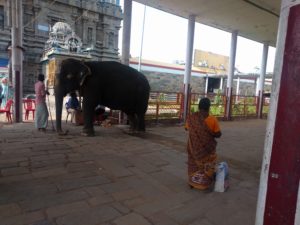 It’s one of the stories in my forthcoming collection, Immigrants (Creators Press, Fall 2023).
It’s one of the stories in my forthcoming collection, Immigrants (Creators Press, Fall 2023).
 As the night broke into the beginnings of a cloud-covered day, we watched a bus pull up. A man held up his shackled wrists to the window. We stood in front of the bus, holding up hearts, and for a moment, we held up “business as usual” as the bus came to standstill. We surrounded the bus, shouting “I love you,” to the shadowy faces in the windows. And “No están solos. Estamos con ustedes.” (You are not alone. We are with you.)
As the night broke into the beginnings of a cloud-covered day, we watched a bus pull up. A man held up his shackled wrists to the window. We stood in front of the bus, holding up hearts, and for a moment, we held up “business as usual” as the bus came to standstill. We surrounded the bus, shouting “I love you,” to the shadowy faces in the windows. And “No están solos. Estamos con ustedes.” (You are not alone. We are with you.)  Then, the police came and since we had not planned for a civil disobedience action that would end in arrest, we let the bus pass through the gate to the plane. They parked a truck in front of the stairway, so we couldn’t see the people limping with their shackles up the stairs into the plane’s belly, but that image, along with other accounts of abuse, has been captured in
Then, the police came and since we had not planned for a civil disobedience action that would end in arrest, we let the bus pass through the gate to the plane. They parked a truck in front of the stairway, so we couldn’t see the people limping with their shackles up the stairs into the plane’s belly, but that image, along with other accounts of abuse, has been captured in 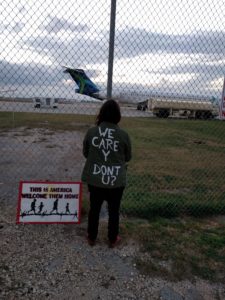
 Two days into my South Africa trip, I started getting cold symptoms. I tested for COVID and was relieved to be negative, so I went on a safari and for a walk with rifle-carrying naturalists in the wild bush, chalking up the fatigue I was feeling to two consecutive red eye flights followed by the eight hour bus ride to Kruger National Park.
Two days into my South Africa trip, I started getting cold symptoms. I tested for COVID and was relieved to be negative, so I went on a safari and for a walk with rifle-carrying naturalists in the wild bush, chalking up the fatigue I was feeling to two consecutive red eye flights followed by the eight hour bus ride to Kruger National Park. 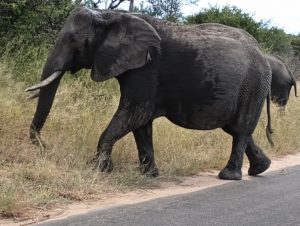 A few days later, when we arrived in Cape Town, my husband was also coughing and sneezing. Our symptoms felt like a typical cold, but just to make sure, we both tested again. BINGO! For both of us, a flaming red line.
A few days later, when we arrived in Cape Town, my husband was also coughing and sneezing. Our symptoms felt like a typical cold, but just to make sure, we both tested again. BINGO! For both of us, a flaming red line. I’ll just have to be patient, put on my mask and be happy enough to sit on an uncrowded beach and watch the sunset.
I’ll just have to be patient, put on my mask and be happy enough to sit on an uncrowded beach and watch the sunset.
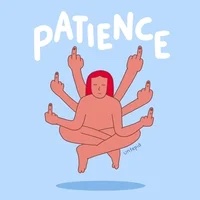

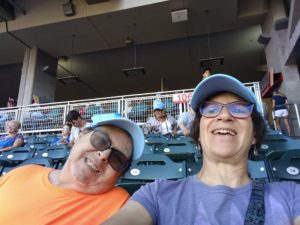 “An artist needs to be something like a whale swimming with his mouth wide open, absorbing everything until he has what he really needs.”–Romare Beardon
“An artist needs to be something like a whale swimming with his mouth wide open, absorbing everything until he has what he really needs.”–Romare Beardon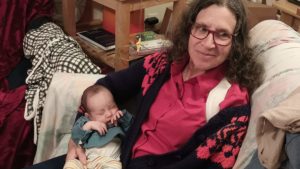 Both have inspired a lot of writing, and watching the awe and wonder with which Manu approaches the world fills me with a poignancy hard to describe without resorting to clichés about both the preciousness and fragility of life, and how one of the most healing things we can do for grief (at least for me) is to continue to practice gratitude and look forward, even as we continue to struggle to make sense of the cracks in our past.
Both have inspired a lot of writing, and watching the awe and wonder with which Manu approaches the world fills me with a poignancy hard to describe without resorting to clichés about both the preciousness and fragility of life, and how one of the most healing things we can do for grief (at least for me) is to continue to practice gratitude and look forward, even as we continue to struggle to make sense of the cracks in our past.